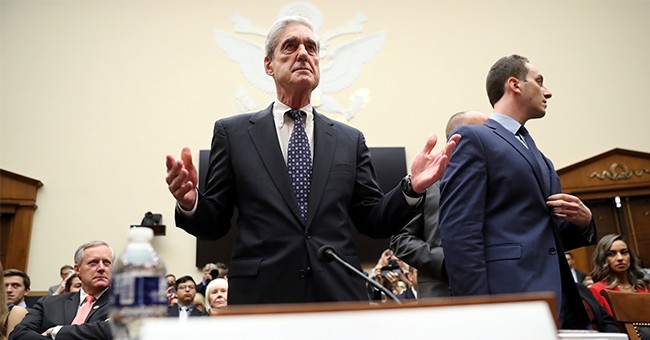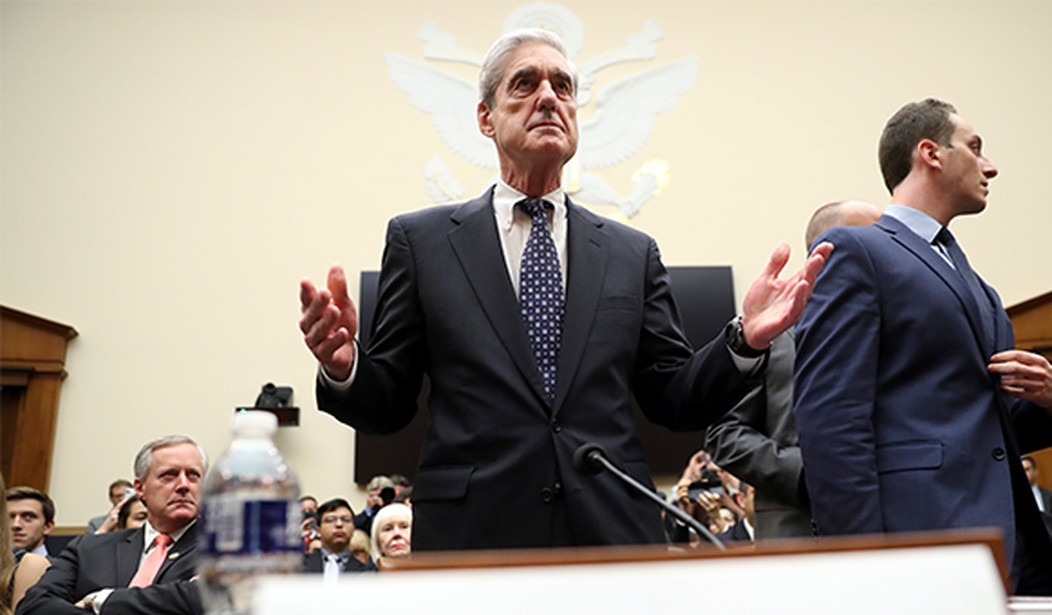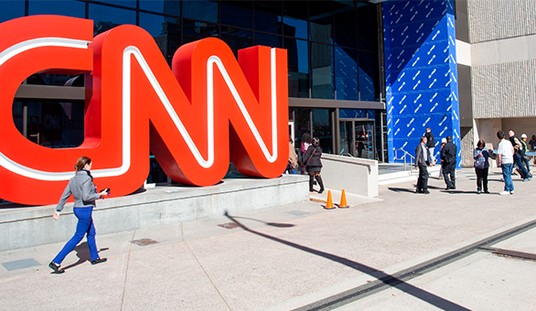
Andrew Weissmann has a book coming out tomorrow — “Where the Law Ends”. That is the first half of a famous quote from 17th-century political philosopher John Locke, with the whole quote reading “Where the law ends, tyranny begins.” The second half of the title to Weissmann’s book is “Inside the Mueller Investigation”, and what Weissmann promises the reader is a first-hand account of what happened behind closed doors in the Special Counsel’s Office’s investigation of the “Russian Hoax” affair and in connection with the drafting of the Mueller Report.
An article dropped late yesterday in The Atlantic magazine with what seems to be Weissmann’s first interview about the content of his book, and its a doozy.
It seems that all was not well behind the scenes in the SCO — and from the description that situation seems to have persisted for a significant period of time. Infighting over the aggressiveness with which the investigators should assert themselves in making head-to-head challenges with Pres. Trump and the White House seems to have been the “line in the sand”.
The two most significant takeaways from the Atlantic story are that Weissmann equates former SCO Chief of Staff Aaron Zebley with noted timid Union Civil War General George McClellan who resisted the entreaties from President Lincoln to attack the smaller Confederate Army after an initial victory at Antietam, while comparing himself and other SCO members to the always attacking Gen. Ulysses Grant.
Weissmann blames this persistent timidity on one of Mueller’s other top deputies, a lawyer named Aaron Zebley, comparing Zebley to George B. McClellan (and more zealous team members, including himself, to Ulysses S. Grant). “Repeatedly during our twenty-two months in operation,” Weissmann writes, “we would reach some critical juncture in our investigation only to have Aaron say that we could not take a particular action because it risked aggravating the president beyond some undefined breaking point.”
Weissmann described to me this failure of nerve on Zebley’s part, an aversion to confronting the ugliness coming from Trump.
It’s noteworthy that Weissmann seems to have internalized the SCO’s mission as akin to the “Civil War.”
Weissmann goes even further with Attorney General Barr, saying that he “sold out his country” in service of Pres. Trump.
But I want to focus this article on Weissmann’s stated contempt for Zebley because it is so strident and revealing. I’m going to add some background that I expect most are not aware of, and then layer some of my own supposition onto the situation.
Andrew Weissmann is a legend in his own mind. He’s been hailed as a crusading avenger against the Mafia in New York before moving on to Washington DC and leading the campaign to tackle boardroom corruption on corporate America when he was picked to lead a DOJ task force prosecuting cases connected to the collapse of ENRON. But the “legend” of Weissmann has always been tarnished by the “ethics” — or lack thereof — of Weissmann. This was nowhere better displayed than in the reversal of one of his most famous ENRON scandal victories, when the Supreme Court ruled 9-0 in United States v. Arthur Anderson that Weissmann’s jury instructions that he convinced the District Court Judge to give failed to state a crime. Yes, Ruth Bader Ginsburg and John Paul Stevens agreed with Clarence Thomas and Antonin Scalia that Andrew Weissmann didn’t know what he was doing.
I wrote about that in “When Andrew Weissmann Was Reversed 9-0 By The Supreme Court and 70,000 People Still Lost Their Jobs.”
But let’s look a little more closely at who Aaron Zebley is, and why Weissmann would go after Zebley so vehemently in blaming him for Weissmann failing to land his “White Whale.”
Aaron Zebley graduated from the University of Virginia Law School in 1996. But rather than practice law, he joined the FBI, where he remained until 2003. Zebley then joined the US Attorneys Office in the Eastern District of Virginia, as a Deputy Chief in the National Security and Terrorism Unit. That’s quite a step, but not if you know that while in the FBI Zelby was one of the key Special Agents in multiple terrorism cases both before and after 9/11, including the 1998 bombings of US Embassies in East Africa, and the prosecution of Zacarias Moussaoui who was arrested in Minnesota three weeks before 9/11 and later alleged by the government to have been in training to replace one of the planned 9/11 hijackers who was denied an entry visa to come to the United States.
Zebley spent approximately 8 years as an Assistant United States Attorney, until 2011 when he was asked by Mueller to be his Chief of Staff in the two-year extension of Mueller’s term as FBI Director. Zebley left the FBI in 2013 when Mueller’s extension came to an end. Significantly, Zebley followed Mueller to the law firm WilmerHale where he became a partner and continued to work with Mueller.
When Mueller was appointed as Special Counsel in May 2017, he brought Zebley with him from WilmerHale, and installed Zebley as Chief of Staff over the entire Special Counsel operation — whereas Weissmann was assigned to lead the team looking at Paul Manafort.
Weissmann was previously a Mueller favorite. Note the dates connected to the following facts:
In 2005 Weissmann departed DOJ to become “Special Counsel” to Robert Mueller as FBI Director. Weissmann’s conviction in the Arthur Anderson case – which resulted in the destruction of business and loss of jobs by more than 70,000 employees worldwide — was reversed by the Supreme Court in January 2005. That was a HUMILIATION of Weissmann at DOJ, especially given the stark terms with which the Court criticized Weissmann’s actions in the case, and the unimaginable hardship his actions caused so many Anderson employees.
Mueller taking Weissmann in at the FBI was really just giving him a temporary home to “lick his wounds,” until he landed a job with the law firm Jenner & Block in New York. Finally, after Barack Obama won in 2008, Weissmann was able to return to DOJ given the more friendly political environment under fellow traveler Eric Holder, where his ignominious past would be forgotten
But in 2011, Weissman left DOJ and became General Counsel of the FBI. Note the symmetry to that date — that is the same time that Aaron Zebley left DOJ to be Mueller’s Chief of Staff. In the two roles, Zebly had the much better of the “action” while Weissmann was left tending to internal legal matters for the FBI. And, more significantly, Weissmann would have reported to Zebly in the chain of command.
So the former FBI agent and line AUSA was now in a position of authority over vaunted DOJ “ENRON Champion” Andrew Weissmann. Weissmann returned to DOJ when Mueller departed, but Zebley got the invitation to the lucrative partnership at WilmerHale.
So, when Weissmann was given the offer to join the Special Counsel’s team, it’s likely that he was not all that happy to look up and find Aaron Zebley once again looking down at him in the Chain-of-Command and holding his reins.
And it was Aaron Zebley who Mueller asked to sit beside him at his appearance before Congress and assist in answering questions about the Mueller Report — not Andrew Weissmann.
Zebley has now returned to the lucrative partnership at WilmerHale, while Andrew Weissmann has had to monetize his time with the Special Counsel’s Office by writing a book blaming Zebley for most of the things that Weissmann believes went wrong. It is fascinating to see this infighting spill out into the media.
I suspect Aaron Zebley, an accomplished professional in his own right — and who has never been reversed 9-0 by the Supreme Court — is not going to take being Andrew Weissmann’s “whipping boy” laying down. It is unlikely to please his partners at WilmerHale either. It will be interesting to see what more is said both on the record and anonymously over the next week by others “in the know.”
More on Weissmann’s book after I’ve had a chance to read it.














Join the conversation as a VIP Member